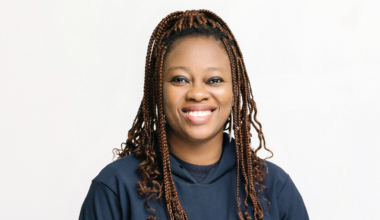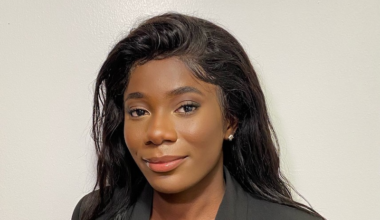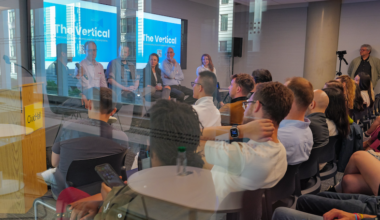“I have always been astonished by the incredible creativity of Indians,” Clubhouse co-founder Rohan Seth said in an interview. A Stanford graduate of Indian origin, Seth certainly embodied that spirit of ‘Indian creativity’ when he devised the world’s most popular live discussion app, where users can participate as both speakers and listeners.
In June, the app extended its Creator First accelerator program to India. Launched in the U.S. just a month ago, the program looks to help aspiring creators monetize their shows. According to Aarthi Ramamurthy, head of International at Clubhouse, Creator First offers assistance with production, development, and promotion. The program can also provide financial support by matching creators with brand sponsors or by supplying a monthly stipend.
The entrepreneurship plunge
Rohan Seth’s journey is not something he advertises publicly. Before moving to the U.S., the techpreneur tried his hand at building different websites in India. In 2002 he started a bachelor’s degree at Stanford University, staying on till he earned his master’s in management science and engineering in 2008. While still a student at Stanford, Seth took a job at Google and spent six years working on user location technology and other products.
Despite his success with Google, Seth wasn’t likely to stay in the corporate world for long. “I have always been one of those people who really enjoyed building things,” he said. His first foray into the world of techpreneurship was a mobile app developer, Memry Labs, which he founded in 2014. Digital real estate platform Opendoor bought the company three years later, and Seth stayed on until 2019.
Seth and his business partner Paul Davison met through a mutual friend in 2011. Business Insider reported that the Clubhouse co-founders had “at least nine failed apps between them, including Talkshow, their first collaboration and the predecessor to Clubhouse.”
The rise, the fall, and the new markets
Clubhouse got a major boost when Elon Musk signed up to lead a discussion, entirely of his own initiative. “We were given short-term notice just to get the servers ready, but with someone who is as busy and well known as Elon, you never really know if it’s going to happen or when it’s going to happen, so there is all this excitement and anticipation in the community beforehand,” Davison said in a TV interview, adding that people waited for hours to get into the room.
Facebook founder Mark Zuckerberg quickly followed Musk’s example. The app’s surge in popularity, led by publicity from tech titans and celebrities, helped attract new funding. Clubhouse is currently valued at about $4 billion.
In a strange way, Clubhouse owes much of its success to the COVID-19 pandemic. With so many people suddenly stuck indoors under lockdown, audio chat services became a novelty, a link to the wider world, and a temporary relief from social isolation. Both founders have discussed the relative freedom of live audio compared to video platforms, since speakers can relax without worrying about their appearance or their surroundings.
Clubhouse’s resounding success has prompted other platforms to develop their own live audio apps. Twitter introduced Spaces in May, Spotify launched Greenroom in June, and Facebook recently announced live audio rooms. Discord and LinkedIn also want to jump on the live audio-streaming room bandwagon. According to some analysts, Clubhouse can only keep up its forward momentum by reaching out to new and emerging markets, such as Seth’s native India.
Since the app expanded from IoS-only to Android, more than one million Indians have downloaded it on Google Play. In India there are rooms where people recite a Hindu prayer called the Hanuman Chalisa, and some rooms dedicated to Antakshari, a group singing game that is unique to the Indian subcontinent.
Eavesdrop on someone’s phone call
Actor and India Today TV presenter Shivan Chanana suggests the app’s popularity in India has a lot to do with the curious nature of people: “To put it simply, this invite-only, audio-based app is like listening in on someone else’s phone call, but in a legal manner.” He adds that Clubhouse helps people get direct access to public figures.
Among the earliest Indian Clubhouse users was Mumbai-based advertising professional Gopal M.S. He attributes the success of Clubhouse in India to the audio medium’s timeliness,, pointing out the popularity of podcasts and audio books. “Clubhouse has caused an audio revolution of sorts,” he told The Vertical.
The app’s meteoric rise may slow down as more competitors enter the market and lockdown-related restriction ease. But Seth’s story is likely to inspire a new generation of immigrant entrepreneurs looking to make it big in America. His message is simple: Connect with people over the internet, and build new things together.
A big part of Seth’s life is now dedicated to a more personal cause. His two-year-old daughter Lydia was born with a mutated gene, which affects brain function and causes severe physical and mental impairments. Seth founded Lydian Accelerator, a non-profit group to design customized treatments for children born with genetic disorders.









1 comment
A deep commitment to personal causes drive meaningful change in society.